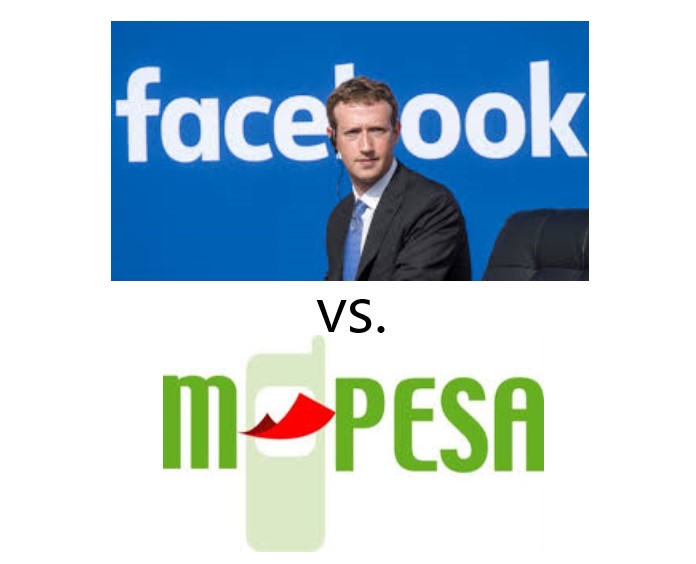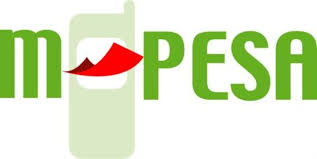Facebook’s Libra and Safaricom’s M-Pesa
Are the similarities mere coincidence and competition, or is a global mega-corporation exploiting a successful Kenyan enterprise without collaboration or compensation?
Since Facebook announced its new Libra currency and mobile payments scheme, the global reaction has been very mixed. Libra is not truly a cryptocurrency though it will use blockchain. It will be pegged to a reserve currency, which cryptocurrencies are not. Libra will “potentially” be governed by an association independent of Facebook, though that association remains non-binding and sketchy at this point. Potential regulatory issues abound around the World, and Facebook is currently not viewed very favorably by many governments. But most interesting to me, Libra appears to be modeled after Kenya’s M-Pesa mobile payments system, the world’s leading mobile payments system, invented by mobile carrier Safaricom. Then I asked myself if Facebook, knowing that it needs to move away from selling personal data, has seized on Safaricom’s M-Pesa as its new revenue model.
More disturbing to me, I asked myself if this might possibly be an example of Western mega-corporate exploitation of a smaller enterprise in the developing world. I have heard no reference whatsoever to M-Pesa from Facebook. In similar situations in high tech, the mega-enterprise would typically acquire the intellectual property of the smaller company, hire its founders and employees to gain market advantage. This is often called an “acqui-hire.” Even without IP, it can be done to simply ensure a positive brand image transaction.
Four years ago, in 2015, Facebook With apparent good intentions, and also a good dose of Facebook business strategy, struck out to promote Free Basics, a free limited Internet for the poor in less developed countries sponsored by Facebook and its local telecommunications partners. India was a prime market focus. While on the face of it Free Basics seemed to have merit, Zuckerberg ran into a wall of opposition. On close inspection of the details, Facebook’s problem, despite all of its global corporate sophistication, appeared to have been naïveté about the foreign markets it was trying to enter. International business is strewn with case studies of corporate arrogance and ignorance that led to failure. Zuckerberg could have looked no further back than 2013 for clues from Google and Eric Schmidt, who also failed in India, as to why Facebook failed. The Indian government viewed both Facebook and Google with the same suspicion that they had for the Raj in 1947.
I do not have all the answers yet about Libra and M-PESA, and other mobile carriers have also entered the mobile payment market, but at this point, I have deep reservations about Facebook’s failure to acknowledge its role and its responsibility to Safaricom and M-PESA. IMHO, questions need to be raised directly to Facebook.
Read more: Facebook’s International Business Blunder: following in the footsteps of Google
A bit of history from The Economist:
Why Does Kenya Lead The World In Mobile Money?
A convergence of factors, some of them accidental, explain Kenya’s lead
Source: Why does Kenya lead the world in mobile money? – The Economist explains
PAYING for a taxi ride using your mobile phone is easier in Nairobi than it is in New York, thanks to Kenya’s world-leading mobile-money system, M-PESA. Launched in 2007 by Safaricom, the country’s largest mobile network operator, it is now used by over 17m Kenyans, equivalent to more than two-thirds of the adult population; around 25% of the country’s gross national product flows through it. M-PESA lets people transfer cash using their phones, and is by far the most successful scheme of its type on earth. Why does Kenya lead the world in mobile money?
M-PESA was originally designed as a system to allow microfinance-loan repayments to be made by phone, reducing the costs associated with handling cash and thus making possible lower interest rates. But after pilot testing, it was broadened to become a general money-transfer scheme. Once you have signed up, you pay money into the system by handing cash to one of Safaricom’s 40,000 agents (typically in a corner shop selling airtime), who credits the money to your M-PESA account. You withdraw money by visiting another agent, who checks that you have sufficient funds before debiting your account and handing over the cash. You can also transfer money to others using a menu on your phone. Cash can thus be sent one place to another more quickly, safely and easily than taking bundles of money in person or asking others to carry it for you. This is particularly useful in a country where many workers in cities send money back home to their families in rural villages. Electronic transfers save people time, freeing them to do other, more productive things instead.
Dozens of mobile-money systems have been launched, so why has Kenya’s been the most successful? It had several factors in its favour, including the exceptionally high cost of sending money by other methods; the dominant market position of Safaricom; the regulator’s initial decision to allow the scheme to proceed on an experimental basis, without formal approval; a clear and effective marketing campaign (“Send money home”); an efficient system to move cash around behind the scenes; and, most intriguingly, the post-election violence in the country in early 2008. M-PESA was used to transfer money to people trapped in Nairobi’s slums at the time, and some Kenyans regarded M-PESA as a safer place to store their money than the banks, which were entangled in ethnic disputes. Having established a base of initial users, M-PESA then benefitted from network effects: the more people who used it, the more it made sense for others to sign up for it.
M-PESA has since been extended to offer loans and savings products, and can also be used to disburse salaries or pay bills, which saves users further time and money (because they do not need to waste hours queuing up at the bank). One study found that in rural Kenyan households that adopted M-PESA, incomes increased by 5-30%. In addition, the availability of a reliable mobile-payments platform has spawned a host of start-ups in Nairobi, whose business models build on M-PESA’s foundations. Mobile-money schemes in other countries, meanwhile, have been held up by opposition from banks and regulators and concerns over money-laundering. But M-PESA is starting to do well in other countries, including Tanzania and Afghanistan, and last month it was launched in India. At the same time, operators in some other countries are doing an increasingly good job of imitating it. Some of the factors behind Kenya’s lead cannot be copied; but many of them can, which means it should eventually be possible for other countries to follow Kenya’s pioneering example.




